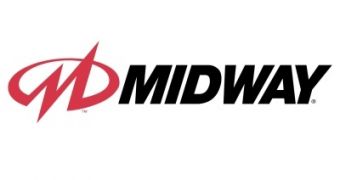Lee Jacobson, the former vice president of Business Development and Licensing for bankrupt publisher Midway, has talked about the recent situation of THQ and advised big game publishers to be more decisive with their projects in order to avoid a similar fate.
Midway was one of the first video game publishers to go bankrupt this generation and the most recent one was THQ, which saw its studios and franchises sold at an auction earlier this month.
Jacobson, while talking during a recent conference in Toronto, via GamesIndustry, has mentioned that once a publisher goes bankrupt, it's unlikely that it will be sold as a whole to another company.
"Unfortunately, what happens more than not is that companies will try to package themselves as an entire entity," Jacobson said.
"But because this business has been around for a long time now, right or wrong, survival of the fittest really applies. Companies that come in and look at assets say, 'We don't want your producers or your product managers or your facilities. We've got all that. But we really like that IP. And that IP. And that IP.'"
Midway was eventually sold wholesale to Warner Bros. back in 2009 while THQ saw some of its franchises and studios be purchased by companies like Ubisoft, Deep Silver, Take-Two, or Crytek.
According to Jacobson, publishers that don't want to end up like Midway or THQ should be quicker to start the development of a game and even quicker to stop it, even if a lot of money was already spent on the product.
"The two hardest things to do in a publishing company are to get a game greenlit, and to get a game killed," Jacobson said.
"Because everybody has capitalized development expenses. Once you went on the hook and stuck your neck out, most publishers aren't going to expense that because they have to take the hit in the quarter they stop the project."
"I can't tell you how many times we kept SpyHunter 3 going when we never should have kept SpyHunter 3 going because we had $12 million capitalized on budget."
Considering a new console generation is going to appear in the near future, quite a lot of publishers are hoping that they'll succeed by releasing more innovative titles.

 14 DAY TRIAL //
14 DAY TRIAL //